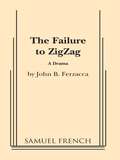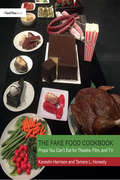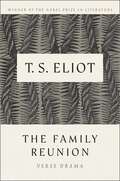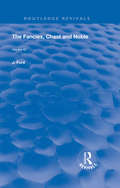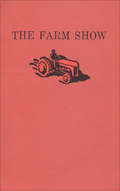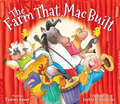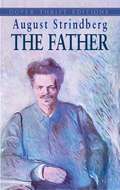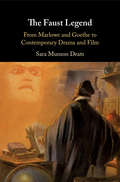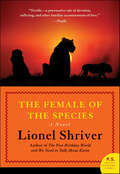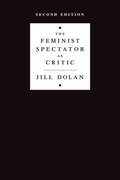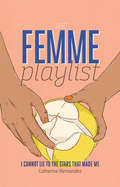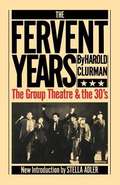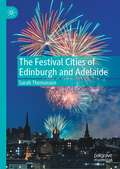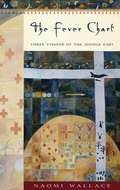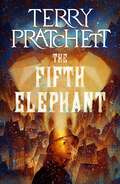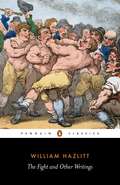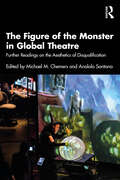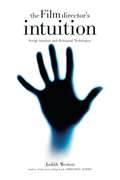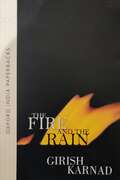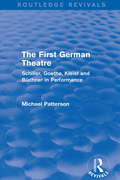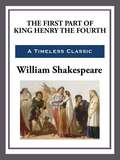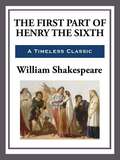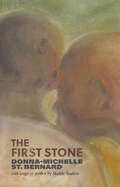- Table View
- List View
The Failure To Zig Zag
by John B. FerzaccaAll Groups / Drama / John B. Ferzacca / 16 m. (doubling possible) / Simple set / Neither the captain of the USS Indianapolis, McVay, nor his crew were told the cargo they had delivered in Tinian contained the essential components for the atomic bomb to be dropped in Hiroshima. Having completed its top secret mission, the ship was sunk by a Japanese submarine. The crew languished in shark infested waters while Naval authorities logged the ship safe in port. The navy's coverup and attempt to make McVay a scapegoat lead to a national scandal. / "A play of epic scope ... attempting to bring clarity and justice overdue to an incident in our history." L.A. Times.
The Fake Food Cookbook: Props You Can't Eat for Theatre, Film, and TV
by Tamara Honesty Karestin HarrisonThe Fake Food Cookbook: Props You Can’t Eat for Theatre, Film, and TV contains step by step instructions on how to create the most realistic prop food for a theatrical production. From appetizers such as oysters on a half shell and chicken wings, entrees such as lobster and honey-glazed ham, to desserts, breakfasts, and even beverages, every meal is covered in this how-to guide. Full color images of each step and finished products illustrate each recipe, along with suggestions for keeping the budget for each project low. Safety Data Sheets and links to informative videos are hosted on a companion website.
The Family Reunion: Verse Drama (Faber Paper-covered Editions Ser.)
by T. S. EliotA modern verse play dealing with the problem of man’s guilt and his need for expiation through his acceptance of responsibility for the sin of humanity. “What poets and playwrights have been fumbling at in their desire to put poetry into drama and drama into poetry has here been realized.... This is the finest verse play since the Elizabethans” (New York Times).
The Fancies, Chaste and Noble (Routledge Revivals)
by John FordPublished in 1985: The main plot portrays the bachelor Octavio, Marquis of Siena, and his establishment of his "Bower of Fancies," something like a Platonic academy for those he calls the "fancies" — Clarella, Silvia, and Floria, three young women who are, or are said to be,"young, wise, noble, fair, and chaste.
The Farm Show
by Ted Johns'This is a record of our version of grassroots theatre. The idea was to take a group of actors out to a farming community and build a play of what we could see and learn. There is no story or "plot" as such ... Nevertheless, we hope that you can see many stories woven into the themes of this play and that out of it will emerge a picture of a complex and living community.' - Paul Thompson
The Farm That Mac Built
by Tammi SauerThe scarecrow from Old Mac Donald&’s farm emcees a barnyard theater production that collapses into hilarious chaos in this rollicking rendition of &“The House That Jack Built.&” It&’s showtime on Old Mac Donald&’s Farm! The barnyard animals are putting on a play—a farm version of "The House That Jack Built"— but other animals keep taking the stage and interrupting the production. First some rambunctious monkeys, then breakdancing kangaroos . . . there&’s even a pair of singing elephants. Everyone knows that monkeys, kangaroos, and elephants do NOT belong on a farm . . . so what to do? Bursting with sound effects and rollicking repetition that will have kids clamoring for repeat readings, this hilarious mashup of two favorite nursery rhymes shows that perseverance and teamwork pay off, and that sometimes you just have to roll with the unexpected and try to have fun with it.
The Father: A Tragedy (Dover Thrift Editions: Plays)
by August StrindbergThe stormy personal life of the great Swedish dramatist August Strindberg was punctuated with duels between the sexes, with ruthless, aggressive women usurping the supposedly male prerogative of decision-making and leadership. More than in any of his other plays, Strindberg explores this theme in depth in The Father.In exploring the emotionally charged battle of the sexes and the clashes between scientific and religious convictions, The Father vividly delineates the essential quality of a man’s relationship with his wife and his daughter. The problem of paternity, trivial at the outset, develops into marital upheaval and a no-holds-barred struggle between man and woman.Widely regarded as one of Strindberg's best literary efforts, The Father remains one of the most gripping psychological dramas of the theater.
The Faust Legend: From Marlowe and Goethe to Contemporary Drama and Film
by Sara Munson DeatsWhat do men and women desire? For what will they barter their immortal souls? These two questions have haunted Western society, and these persistent queries find their fullest embodiment in the Faust legend. This memorable story, told and retold in novels, prose fiction, and drama, has also profoundly influenced music, art, and cinema. Sara Munson Deats explores its impact, tracing the development of the Faust topos from the seminal works of Marlowe and Goethe to the large number of dramatic and cinematic adaptations which have fascinated audiences and readers throughout the centuries. Her study traces the durability of this legend and its pervasive influence on the literature of the Western world, in which it has adapted across time, languages, and nations to reflect the concerns of a given era or place. This is the first comparative analysis of the Faust legend in drama and film.
The Female of the Species: A Novel
by Lionel Shriver“Shriver’s debut is a 'literary' novel without an iota of pretentiousness. It reads with the grace of a well-written spy story, but conveys some of its author’s early wisdom about what our humanity both demands of and grants us.” —Washington PostThe first novel by the New York Times bestselling author Lionel Shriver, The Female of the Species is the exotic and chilling story of a highly independent and successful woman’s late-life romantic education, in all its ecstasy and desperationStill unattached and childless at fifty-nine, world-renowned anthropologist Gray Kaiser is seemingly invincible—and untouchable. Returning to make a documentary at the site of her first great triumph in Kenya, she is accompanied by her faithful middle-aged assistant, Errol McEchern, who has loved her for years in silence. When sexy young graduate assistant Raphael Sarasola arrives on the scene, Gray is captivated and falls hopelessly in love—before an amazed and injured Errol's eyes. As he follows the progress of their affair with jealous fascination, Errol watches helplessly from the sidelines as a proud and fierce woman is reduced to miserable dependence through subtle, cruel, and calculating manipulation.
The Feminist Spectator as Critic (Second Edition)
by Jill DolanThe Feminist Spectator as Critic broke new ground as one of the pioneering books on feminist spectatorship, encouraging resistant readings to generate feminist meanings in performance. Approaching live spectatorship through a range of interdisciplinary methods, the book has been foundational in theater studies, performance studies, and gender/sexuality/women's studies. This updated and enlarged second edition celebrates the book's twenty-fifth anniversary with a substantial new introduction and up-to-the-moment bibliography, detailing the progress to date in gender equity in theater and the arts, and suggesting how far we have yet to go.
The Femme Playlist & I Cannot Lie to the Stars That Made Me
by Catherine HernandezFrom masturbation to motherhood, body shaming to burlesque, Catherine Hernandez reveals the reality of living as a queer woman of colour. Set to the music of her life, The Femme Playlist shows what it’s like to be sexy and proud, slutty and loud, queer and brown. I Cannot Lie to the Stars That Made Me is an around-the-campfire guide to mourning and healing for women of colour, written after Hernandez and her daughter left an abusive relationship. As a group of women share their stories around a campfire, they pray for each other and give as much strength as their bodies will allow.
The Fervent Years: The Group Theatre and the Thirties
by Harold ClurmanThe Group Theatre was perhaps the most significant experiment in the history of American theater. Producing plays that reflected topical issues of the decade and giving a creative chance to actors, directors, and playwrights who were either fed up with or shut out of commercial theater, the "Group" remains a permanent influence on American drama despite its brief ten-year life. It was here that method acting, native realism, and political language had their tryouts in front of audiences who anticipated--indeed demanded--a departure from the Broadway "show-biz" tradition. In this now classic account, Harold Clurman, founder of the Group Theatre and a dynamic force as producer-director-critic for fifty years, here re-creates history he helped make with Lee Strasberg, Elia Kazan, Irwin Shaw, Clifford Odets, Cheryl Crawford, Morris Carnovsky, and William Saroyan. Stella Adler contributed a new introduction to this edition which remembers Clurman, the thirties, and the heady atmosphere of a tumultuous decade.
The Festival Cities of Edinburgh and Adelaide
by Sarah ThomassonThe Festival Cities of Edinburgh and Adelaide examines how these cities’ world-famous arts events have shaped and been shaped by their long-term interaction with their urban environments. While the Edinburgh International Festival and Adelaide Festival are long-established, prestigious events that champion artistic excellence, they are also accompanied by the two largest open-access fringe festivals in the world. It is this simultaneous staging of multiple events within Edinburgh’s Summer Festivals and Adelaide’s Mad March that generates the visibility and festive atmosphere popularly associated with both places. Drawing on perspectives from theatre studies and cultural geography, this book interrogates how the Festival City, as a place myth, has developed in the very different local contexts of Edinburgh and Adelaide, and how it is challenged by groups competing for the right to use and define public space. Each chapter examines a recent performative event in which festival debates and controversies spilled out beyond the festival space to activate the public sphere by intersecting with broader concerns and audiences. This book forges an interdisciplinary, comparative framework for festival studies to interrogate how festivals are embedded in the social and political fabric of cities and to assess the cultural impact of the festivalisation phenomenon.
The Fever Chart: Three Short Visions of the Middle East
by Naomi Wallace"Naomi Wallace commits the unpardonable sin of being partisan, and, the darkness and harshness of her work notwithstanding, outrageously optimistic. She seems to believe the world can change. She certainly writes as if she intends to set it on fire."--Tony KushnerNaomi Wallace, the rare writer who combines lyrical theatricality with political ferocity, turns her sight to the Middle East, with a new triptych for the stage. Vision One, A State of Innocence, is set--as the playwright describes, in "something like a small zoo, but more silent, empty, in Rafah, Palestine. Or a space that once dreamed it was a zoo"--and features a Palestinian woman, an Israeli architect, and an Israeli soldier. Vision Two, The Retreating World, is of an Iraqi bird keeper from Baghdad and his address before the International Pigeon Convention. Vision Three, Between this Breath and You, takes place after hours in the waiting room of a clinic in West Jerusalem, where a Palestinian father confronts the nurse's aide, a young Israeli woman, about the meaning of the loss of his son and the impact it had on her life. These multifaceted works explore the urgency and complexity of the Middle East's political landscape, through the voices and bodies of the people who inhabit it.Naomi Wallace is a poet and playwright from Kentucky, who currently resides in England. Her numerous awards include the MacArthur "Genius" Fellowship. Her plays, including One Flea Spare, In the Heart of America, and Trestle at Pope Lick Creek, are produced throughout the United States and around the world.
The Fifth Elephant: A Discworld Novel (City Watch #5)
by Terry Pratchett“Pratchett cheerfully takes readers on an exuberant tale of mystery and invention. Along the way, he skewers everything from monarchy to fascism, as well as communism and capitalism, oil wealth and ethnic identities, Russian plays, immigration, condoms, and evangelical Christianity—in short, everything worth talking about.” —Publishers Weekly Elephants, werewolves, and ruby tights (oh my!) collide in this clever Discworld tale rich in mystery, myth, intrigue, and a dollop of diplomacy from the legendary New York Times bestselling author Terry Pratchett.Everyone knows that the world is flat, and supported on the backs of four elephants. But weren’t there supposed to be five? Indeed there were. So where is the fifth elephant?Commander Sam Vimes of the Ankh-Morpork constabulary is the man to find out. A copper through and through, he’s been “invited” to attend a royal function as a diplomat, ambassador to the mysterious, fat-rich country of Uberwald—complete with ruby tights.Of course where cops go, crime follows. An attempted assassination and a theft soon lead to a desperate chase from the low halls of Discworld royalty to the legendary fat mines of Uberwald, where lard is found in underground seams along with tusks and teeth and other precious ivory artifacts. It’s up to the dauntless Vimes to solve the puzzle of the missing pachyderm. After all, that’s what he does.Only there are monsters on his trail—bright, fast, toothy werewolves. And they’re catching up.The Discworld novels can be read in any order but The Fifth Elephant is the 5th book in the City Watch collection.The City Watch series in order:Guards! Guards!Men at ArmsFeet of ClayJingoThe Fifth ElephantNight WatchThud!Snuff
The Fight and Other Writings
by William HazlittHazlitt is one of the greatest masters of English prose style and this new selection demonstrates the variety and richness of his writing. The volume includes classic pieces of drama and literature criticism, such as his essays on Shakespeare and Coleridge, as well as less well-known material from his social and political journalism. This collection encourages the reader to reconsider the nature of critical writing, which Hazlitt transforms into an art form.
The Figure of the Monster in Global Theatre: Further Readings on the Aesthetics of Disqualification
by Michael M. ChemersBringing together international perspectives on the figure of the “monster” in performance, this edited collection builds on discussions in the fields of posthumanism, bioethics, and performance studies. The collection aims to redefine “monstrosity” to describe the cultural processes by which certain identities or bodies are configured to be threateningly deviant, whether by race, gender, sexuality, nationality, immigration status, or physical or psychological extraordinariness.The book explores themes of race, white supremacy, and migration with the aim of investigating how the figure of the monster has been used to explore representations of race and identity. To these, we add discussions on gender, queer identities, and how the figure of the “monster” has been used to explore the gendered body to finally understand how monstrosity intersects with contemporary issues of technology and the natural world. Navigating the fields of disability studies, performance-centered monster studies, and representation in performance, editors Michael M. Chemers and Analola Santana have brought together perspectives on the figure of the “monster” from across a variety of fields that intersect with performance studies.This book is essential reading for Theatre and Performance students of all levels as well as scholars. It will also be an enlightening text for those interested in monstrosity and Cultural Studies more broadly.
The Film Director's Intuition: Script Analysis And Rehearsal Techniques
by Judith WestonA filmmaker's most precious assets - not just for directing actors, but also for making all the storytelling decision - are his instincts, imagination, and intuition. The author reveals the secrets that can keep an imagination alive and free a director's intuition, so everyone on the set can function at full creativity. You will learn about: sources of imagination ; goals of script analysis ; tools of the storyteller ; the lost art of rehearsal ; and the director's authority.
The Fire and The Rain: A play translated from the Kannada by the author
by Girish KarnadThis play by one of India s foremost playwrights and actors is based on a story from the Mahabharata which tellingly illuminates universal themes - alienation, loneliness, love, family, hatred - through the daily lives and concerns of a whole community of individuals.
The First Frame
by Pannill CampIn the late eighteenth century, a movement to transform France's theatre architecture united the nation. Playwrights, philosophers, and powerful agents including King Louis XV rejected the modified structures that had housed the plays of Racine and Molière, and debated which playhouse form should support the future of French stagecraft. In The First Frame, Pannill Camp argues that these reforms helped to lay down the theoretical and practical foundations of modern theatre space. Examining dramatic theory, architecture, and philosophy, Camp explores how architects, dramatists, and spectators began to see theatre and scientific experimentation as parallel enterprises. During this period of modernisation, physicists began to cite dramatic theory and adopt theatrical staging techniques, while playwrights sought to reveal observable truths of human nature. Camp goes on to show that these reforms had consequences for the way we understand both modern theatrical aesthetics and the production of scientific knowledge in the present day.
The First German Theatre (Routledge Revivals): Schiller, Goethe, Kleist and Büchner in Performance
by Michael PattersonFirst published in 1990. The book surveys of the development of German theatre from a market sideshow into an important element of cultural life and political expression. It examines Schiller as ‘theatre poet’ at Mannheim, Goethe’s work as director of the court theatre at Weimar, and then traces the rapid commercial decline that made it difficult for Kleist and impossible for Büchner to see their plays staged in their own lifetime. Four representative texts are analysed: Schiller’s The Robbers, Goethe’s Iphigenia on Tauris, Kleist’s The Prince of Homburg, and Büchner’s Woyzeck. This title will be of interest to students of theatre and German literature.
The First Part of King Henry IV (The New Cambridge Shakespeare)
by William Shakespeare Judith Weil Herbert WeilThis updated edition offers a strongly theatrical perspective on the origins of Shakespeare's The First Part of King Henry IV and the history of its interpretation. The introduction clarifies the play's surprising, de-centred dramatic structure, questioning the dominant assumption that the drama focuses on the education of Prince Hal. It calls attention to the effects of civil war upon a broad range of relationships. Falstaff's unpredictable vitality is explored, together with important contemporary values of honour, friendship, festivity and reformation. Extensive lexical glosses of obscure, ambiguous or archaic meanings make the rich wordplay accessible. The notes also provide a thorough commentary on Shakespeare's transformation of his sources (particularly Holinshed's Chronicles) and suggest alternative stagings. This updated edition contains a new introductory section by Katharine A. Craik, which describes recent stage, film and critical interpretations, and an updated reading list.
The First Part of King Henry the Fourth
by William ShakespeareThis memorable historical drama concerns rebellion against King Henry led by Harry Percy ("Hotspur") and other nobles, complicated by the king's difficulties with his wayward son, Prince Hal. It features a superb blend of courtly intrigue, battlefield action, and low comedy featuring Sir John Falstaff, all expressed in fine blank verse and stirring prose.
The First Part of King Henry the Sixth
by William ShakespeareThe play opens in the aftermath of the death of King Henry V of England (although it was written before Shakespeare's play, Henry V). News reaches England of military setbacks in France, and the scene shifts across the English Channel, to Orleans, where "La Pucelle" (Joan of Arc) is encouraging the Dauphin to resist. She defeats an English army led by Talbot.
The First Stone
by Donna-Michelle St. Bernard“No one remembers why it started—What the first stone was for—And so no one can think of a reason to stop.”Can something torn apart by war be put together again? From the award-winning author of Gas Girls and Sound of the Beast, Donna-Michelle St. Bernard’s The First Stone is an epic-yet-intimate exploration of the harrowing path from violence to forgiveness. In an unnamed village in a country modelled after Uganda, two children are captured by an army and forced to commit unimaginable atrocities while their family longs for their return. Through poetry and song, this insightful drama sheds light on the exploitation of child abductees, the communities from which they are stolen, the determination to bring them home, and the hard road to reconciliation that follows.Expansive in its scope, The First Stone is a profound parable that traces ancestral cycles of violence and the imperatives of transformative justice with staggering clarity. This merciful call for humanity follows one family’s struggle to reunite, measuring the cost of holding on and the grace of letting go.
